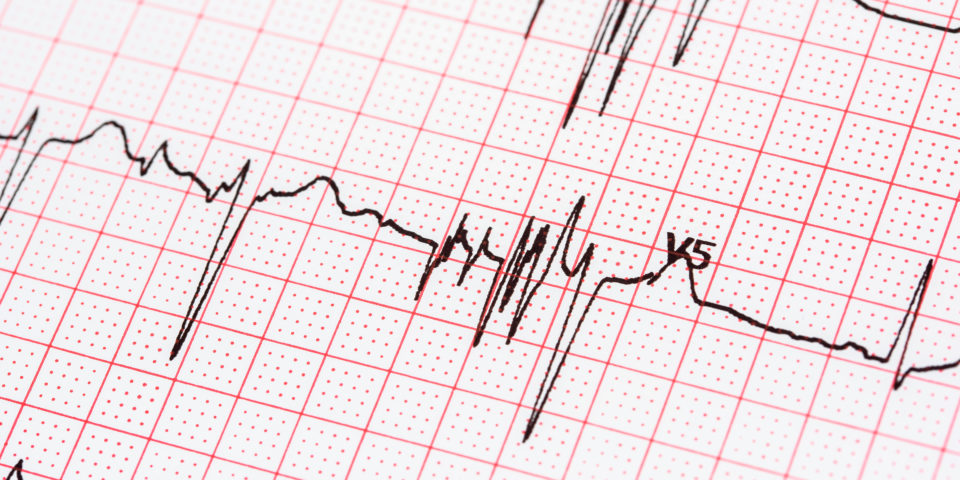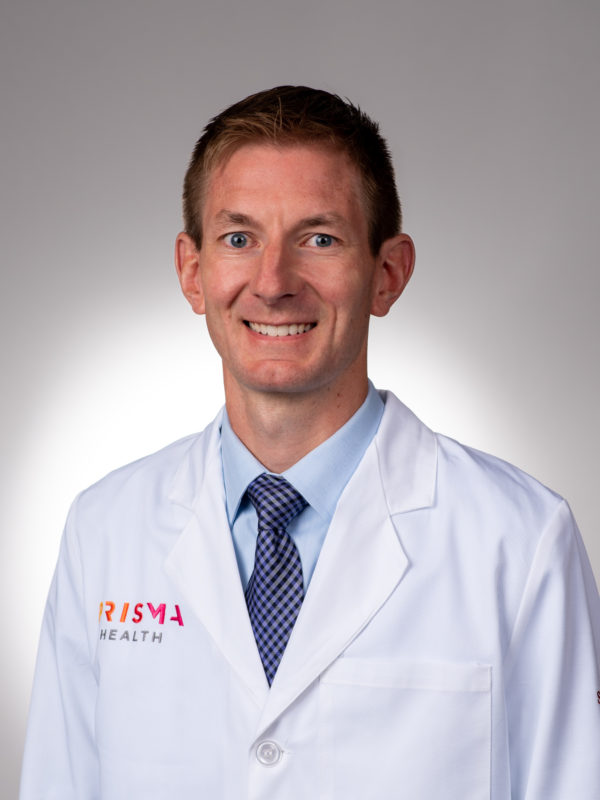Preventing stroke when you have AFib
Stroke is a common concern when someone has been diagnosed with atrial fibrillation or AFib. Cardiologist and electrophysiologist Chad Ward, MD, explained why and what you can do to lower your risk of stroke.
What is AFib?
AFib is a common type of arrhythmia, or irregular heartbeat. “Not everyone can feel it,” Dr. Ward said. “Sometimes people feel irregular or that their heart is beating fast.”
Even if you don’t feel symptoms, this doesn’t mean AFib should be ignored. One of the main reasons AFib should be treated is because of its connection to strokes.
How does AFib cause a stroke?
When people experience AFib, blood isn’t pumping as efficiently as it should. This can cause blood to pool and clot in the atrium of the heart, which can then break off and cause an embolic stroke.
“About 90% of AFib-related strokes come from the left atrial appendage,” Dr. Ward said. “The reason being is that the blood flow in the appendage is quite a bit lower than everywhere else in the left atrium.”
Lowering the risk of stroke is important when treating AFib. Taking blood thinners can reduce that risk. “The risk of stroke versus the risk of major bleeding has to be considered,” Dr. Ward said. “Whenever we determine that a patient has AFib, we use a decision-making tool to decide if we should start anticoagulation.”
The CHA2DS2-VASC stroke risk score helps determine your stroke risk. Guidelines typically suggest that anticoagulation (blood thinners) should be used in patients with a CHA2DS2-VASC score of 2 or higher for men or 3 or higher for women. Anticoagulation typically reduces stroke by 70%.
“But it always involves a discussion with the patient,” Dr. Ward said. “I have patients with twos and threes who don’t want to start anticoagulation.”
If someone is at high risk for bleeding, other treatments can be considered.
How is AFib treated?
Medications that help control the heart rate can be used to manage AFib. “This rhythm control strategy is typically reserved for people who are experiencing symptoms, have heart failure, and we think the decreased synchrony might be contributing to the heart failure,” Dr. Ward said.
Not everyone will be prescribed medication. In some cases, other procedures might be used, including:
Watchman. This is a small mesh device that closes off the left atrial appendage, where 90% of strokes come from. It’s currently only for people who cannot tolerate anticoagulation, which includes someone who has had a fall or is at high risk for a fall and intracranial hemorrhage, or someone who’s had gastrointestinal bleeds, very heavy bleeds from their nose, or frequent cuts with major bleeding.
Atrial ablation and pacemaker. This is a more permanent form of rate control where every beat is being paced by an implanted pacemaker device. “We typically reserve this for cases where we just cannot control the heart rate,” Dr. Ward said.
Cardioversion. In this procedure, electrical cardioversion “shocks” the heart back to a normal rhythm. But there’s no guarantee it will be permanent. “Cardioversion can be described as more of a Band-Aid,” said Dr. Ward. “Sometimes it does hold and people stay out of AFib for a long time.”
Catheter ablation. This procedure uses heat or intense cold to create small scars in the areas of the heart where the abnormal rhythm is occurring, causing it to return to a normal rhythm.
“A catheter ablation is around 70% effective,” Dr. Ward said, “and medications are 40 to 50% effective. A second or third ablation is more like 80 to 90% effective.”
However, it’s important to talk to your cardiologist about what approach is right for you because there’s no perfect treatment.
Can lifestyle changes help with AFib?
It also helps to make a few lifestyle changes to control AFib and improve your heart health. These changes include:
- Reducing obesity through healthy eating and regular exercise
- Improving sleep habits/seeking treatment for sleep apnea
- Controlling hypertension and diabetes
- Quitting smoking
- Reducing alcohol intake
- Limiting caffeine
Find a cardiologist you trust
We make it easier to get the care your heart needs, with cardiologists located near you.
Learn More

